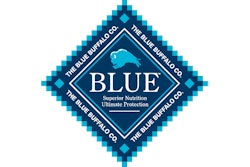
In May 2014, Purina filed a lawsuit against Blue Buffalo for false advertising after testing revealed the presence of poultry by-product meal in some of Blue Buffalo’s pet foods, which were specifically marketed as being free from that ingredient. Although the pet food companies settled that case the following year, related legal issues continued.
On October 24, 2019, the manager of the pet food ingredient processing facility from which Blue Buffalo received those products adulterated with poultry by-product meal pleaded guilty in Missouri federal court. William Haning, the former manager of a Wilbur-Ellis Company plant in Texas, pleaded guilty to his role in a multi-million dollar conspiracy to sell adulterated ingredients to pet food manufacturers, including Blue Buffalo.
“For years, William Douglas Haning orchestrated a scheme similar to charging filet mignon prices for ground beef. He unjustly lined his own pockets at the expense of unsuspecting consumers,” said Acting Special Agent in Charge Alicia Corder of the FBI St. Louis Division, in a press release. “Corporate fraud is one of the top white-collar crime priorities for the FBI.”
Specifically, Haning pleaded guilty to one count of conspiracy to introduce adulterated and/or misbranded food into interstate commerce and one count of money laundering. Wilbur-Ellis Company has already paid more than US$4.5 million in restitution. U.S. Chief District Judge Rodney Sippel heard the case in the Eastern District of Missouri.
Haning and others admitted to shipping the adulterated pet food ingredients to manufacturers in Indiana and Connecticut, as well as six co-packers in Kansas, Pennsylvania and Minnesota. For more than six years, the conspirators falsely labeled and shipped products as single-ingredient premium pet food ingredients, such as chicken meal or turkey meal. The pet food ingredients sold to Blue Buffalo and others were supposed to be only chicken and turkey meal. However, conspirators admitted using lower cost, lower quality feather meal and other co-products in shipments from a facility in Rosser, Texas.
“U.S. consumers – and especially pet owners – look to the FDA to ensure that their pets’ food is not only safe and wholesome, but is also accurately labelled. When criminals introduce adulterated and falsely labelled pet food into the U.S. marketplace, they put the health of companion animals at risk,” said Special Agent in Charge Charles L. Grinstead, FDA Office of Criminal Investigations Kansas City Field Office, in a press release. “We will continue to investigate and bring to justice food manufacturers who put profits ahead of the public health.”
More details on adulterated pet food ingredient case
The following is from a Department of Justice press release:
Haning was the operations manager of the Wilbur-Ellis facility in Rosser, Texas. Wilbur-Ellis marketed and distributed products and ingredients for use in the pet food industry, including animal proteins used in the manufacture of dog food and cat food. Those sales included both direct sales by Wilbur-Ellis to pet food companies and manufacturers, and sales by Wilbur-Ellis conducted through one or more intermediaries, such as Diversified Ingredients, Inc., a commodities broker and distributor in Missouri whose customers include a number of pet food companies and manufacturers.
The fraud scheme began in January 2008, before Wilbur-Ellis purchased the Rosser facility, and continued through May 2014. Wilbur-Ellis purchased the facility in 2011 from Haning and his family members. Haning continued working in his sales and management role as an employee of Wilbur-Ellis. Haning continued to be responsible for buying the food ingredients blended at the Rosser facility and selling the products shipped from the Rosser facility.
The adulteration and misrepresentations made the Wilbur-Ellis Rosser facility more profitable over the course of the fraud scheme. This profitability triggered the deferred payment or “earn-out” provisions that were part of the agreement when the facility was sold to Wilbur-Ellis. As a result, Wilbur-Ellis made a US$4,608,414 deferred payment for the benefit of Haning and others in 2013, and a US$4,391,586 deferred payment for the benefit of Haning and others in 2014. In addition, between July 2011 and May 2014, Haning received cash and other indirect payments.
Wilbur-Ellis already has paid US$4,549,682 in restitution to the victims of this fraud scheme. Under the terms of today’s plea agreement, the government and the defendant agree that the appropriate disposition of this case is probation for a period of five years. A sentencing hearing will be scheduled after the completion of a presentence investigation by the United States Probation Office.
This case was prosecuted by Special Attorneys to the United States Attorney General Kathleen D. Mahoney and Kyle Bateman. It was investigated by the FBI, U.S. Postal Inspection Service, and the FDA Office of Criminal Investigations.
History of the Purina lawsuit against Blue Buffalo
From Petfood Industry:
On May 6, 2014, Purina filed a lawsuit against Blue Buffalo for false advertising of pet food after testing revealed the presence of poultry by-product meal in some of Blue Buffalo’s top-selling pet foods. The false advertising of pet food lawsuits claimed that some Blue Buffalo products were not consistent with the company’s “True Blue Promise,” which stated that the products are “formulated with the finest natural ingredients” and made with “no chicken/poultry by-products meals; no corn, wheat or soy; and no artificial preservatives, colors or flavors.”
Subsequently, Blue Buffalo officially filed a lawsuit against Purina on May 14, 2014. The lawsuit, in response to a lawsuit filed by Purina against Blue Buffalo, claims defamation, unfair competition, false advertising and violations of trade practice statutes.
On May 6, 2015, Blue Buffalo acknowledged in court that a “substantial” and “material” portion of Blue Buffalo pet food sold to consumers contained poultry by-product meal, despite advertising claims to the contrary. Under the terms of the agreement, Blue Buffalo had to pay US$32 million into a settlement fund to settle the claims of the plaintiff class.














